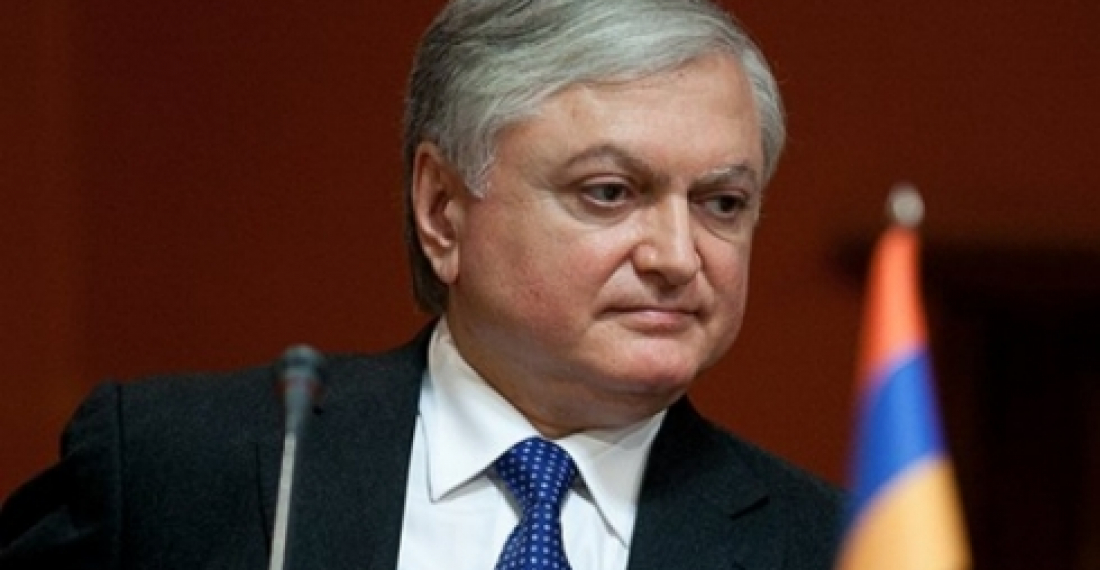The Armenian Foreign Minister Edward Nalbandian gave his version of events as to why Armenia did not sign an Association Agreement with the European Union in 2013, as had been planned.
Speaking at the opening of the 89th NATO Parliamentary Assembly Rose-Roth Seminar in Yerevan on 18 June, Nalbandian said that Armenia had wanted to join the Russia led Customs Union long before September 2013. "For a long time prior to that when we were asked whether we wanted to join the Customs Union we said yes. We did not join because nobody had invited us to until that point", Nalbandian said to the astonishment of some of those present.
Nalbandian said that Armenia wanted to co-operate with everybody, but was presented with a choice of either signing the EU Association Agreement or joining the Russian led Eurasian Economic Union. "We were told we had to make a choice, even a civilizational choice. Armenia made its civilization choice centuries ago and did not need to make another one. We wanted to sign the Association Agreement, but without the DCFTA provisions but we were told this was not possible and that the Association Agreement was incompatible with EEU membership", the Minister said. Nalbandian blamed Brussels for forcing the decision on Armenia. He said that now Armenia and the EU were looking at ways in which they could take their co-operation forward, and have agreed to co-operate on a range of issues as long "as these were compatible with Armenian international obligations".
Nalbandian welcomed the fact that the Riga Summit had recommended that the EU member states give the European Commission a new mandate to negotiate the new arrangements.
Commonspace.eu political editor said that many in the European Union will find Minister's Nalbandian version of events around the issue of the signing of the Association Agreement between Armenia and the EU in 2013, astonishing. The negotiations on the Association Agreement were discussed in dozens of meetings over several years, and September 2013 a thousand page document had been agreed and was ready for signature. Throughout the process Armenian officials assured Brussels that the Association Agreement with the EU was their choice - something that makes sense giving that the EU is Armenia's largest trading partner.
This version of events also contradicts informal briefings that Armenian diplomats had given immediately after Armenia abandoned the signing of the Association Agreement, namely that Armenia was under considerable pressure to do so from Russia. Armenian President Serzh Sargsyan himself highlighted issues of security when he announced the decision in Moscow on 3 September 2013.
It is not clear what has caused Armenian diplomacy to change its narrative, but this is unlikey to contribute to easy negotiations once the process of a new contractual relationship starts being negotiated.
Source: commonspace.eu
photo: The Armenian Foreign Minister Edward Nalbandian. (picture from archive)







